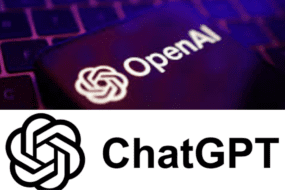In Nigeria, where millions remain shut out of formal lending systems, fintech startup Lendsqr is introducing a bold new solution. The company is developing an artificial intelligence model that uses facial and voice recognition to assess creditworthiness. Designed to cut through the rigid bureaucracy of loan applications, this technology could offer small, life-changing loans to people typically overlooked by traditional banks.
The company’s founder, Adedeji Olowe, says the project is about redefining how financial trust is earned. “Can we help vulnerable people prove their capacity and character, not through paperwork but through their words and expressions? That’s the core idea behind this AI project,” he shared. In a country where only about 6% of adults have ever accessed formal credit, and less than 12% of the 41 million small businesses qualify for loans, the potential of such innovation cannot be overstated.
How the Model Works
Lendsqr’s system begins with a short interview. Rather than submitting documents, borrowers respond to a few questions about their income, job, and repayment plans using either video or voice recordings. The AI then evaluates the borrower’s facial expressions and vocal patterns, gauging two key elements: capacity (ability to repay) and character (likelihood of fraud or default).
So far, the results are promising. Lendsqr claims its model reaches 76% accuracy in predicting repayment behaviour. Currently funded by the company itself, the pilot is expected to be backed by comprehensive research and data by Q3 2025. Importantly, this data will be open-sourced so that other lenders—even competitors—can adapt and improve on it.
With support from Google and Nigeria’s Ministry of Communications & Digital Economy, the project could become a cornerstone of accessible credit systems. However, Lendsqr aims to reach 90% accuracy before rolling out the model at scale.
A Solution for More Than Just Nigeria
While the primary focus is on Nigeria’s unbanked communities, Olowe believes the tool could work in other countries. He noted that immigrants and students in Canada also struggle to get loans due to a lack of local credit history. By using behavioural data instead of traditional metrics, the system could become a universal entry point for financial services.
“If it works, it won’t replace traditional lending for large assets like mortgages but will unlock access to essential, foundational credit for millions,” Olowe said. In practical terms, better screening means fewer defaults. As he put it, “Imagine a lender issuing loans to 10,000 people: if 9,000 repay because of better screening, it not only improves profitability but also sustains the lending ecosystem.”
Lower risks for lenders could lead to lower interest rates for borrowers and ultimately, financial inclusion on a broader scale.
- OpenAI’s Advertising Ambitions: ChatGPT Set to Enter the Ads Game
- Nigeria Ranked 72nd for AI Readiness … But What Does That Actually Mean for You?
- AI Readiness: See Where Nigeria Ranks According to Oxford
- Nigeria Opens First National AI Centre at the University of Jos
- OpenAI Introduces ChatGPT Health for Wellness Support
- Aptech Unveils Cross-Border AI Degree for Nigerian Tech Students













No Comments